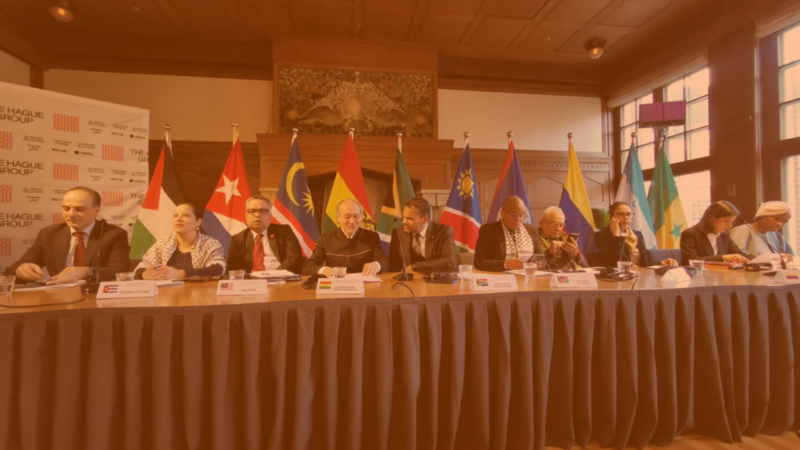Yesterday, French labour unions mobilised in the streets of France against President Macron’s push to deregulate the labour market. Macron’s move is much more than a simple ideological battle of how to best attack France’s unemployment – it takes place in a wider European context, that deserves exploring.
Three years ago, then French President Hollande, as if asking for clemency, said: “Don’t ask us to do in five years … what our German friends did in more than ten years in a much more favourable economic setting and without any constraint from the public deficit.” At the time, Berlin was growing impatient with Paris’ reluctance to mimic its own labour market reforms, and was pressuring France to make similar moves. These “structural” reforms reflected Europe’s new paradigm of austerity and neoliberal convergence, which were aimed at two things.
First, to disguise wage ‘moderation’, the obliteration of hard-won labour rights and the decimation of trade unions under the false promises of boosting employment, fostering entrepreneurship and allowing for investment to flourish as a result.
Second, and most critically, to harmonise French labour market “flexibility” with Germany as part of Wolfgang Schäuble’s ultimate plan for Europe: to prepare the ground for the de facto installation of a troika directorate in Paris and other European capitals.
Ahead of the German elections later this month, President Macron isn’t apologetic at all: he will push his neoliberal labour reform at once – and its subsequent and inevitable welfare state restructuring – to pave the way for Schäuble’s plan.
Macron was elected fully aware of Schäuble’s plan for Europe. His counter-plan was to make a deal with Chancellor Merkel: to deliver a Germanised French labour market (which some French corporations would eagerly embrace) in exchange for a ‘federation-lite’ (including a small common budget, 1% of eurozone GDP, some Eurobonds, funding some federal investment projects and possibly a federal unemployment and bank deposit insurance).
DiEM25 criticised this proposed deal as a Faustian bargain: We argued that, even if Macron Germanised French labour, Merkel would not deliver the ‘federation-lite’. She would make promises but then take them back. But even if she did, in the end, buckle, Macron would waste all his political capital to effect a federation-lite that is macroeconomically and socially insignificant. Once citizens realised that, he would be toast.
Things have already turned out far, far worse than we expected. Merkel, Schäuble but also Schultz rejected out of hand Macron’s federation-lite. Gone! Instead, they are proposing that the European Stability Mechanism (ESM) should be transformed into a souped-up European Monetary Fund: i.e., a bailout fund (like the IMF) with an additional capacity to lend monies for the purpose of some investment and unemployment benefit payments.
For some this sounded much like Macron’s idea: a common fund for eurozone member-states paying for investment and insurance. Not so! The ESM has the same, exact, structure as… the Eurogroup. Indeed, its governors are the Eurogroup members! Moreover, for every euro it pays to a country, it does so on condition that its expenditure is reviewed by the troika (which they call the Euro Working Group) and comes with strings attached. This means something startling: For France or Italy to benefit from this ‘reformed’ ESM-EMF, they will have to subject themselves to… the troika.
Conclusion 1: Schäuble’s plan, which was always about taking the troika to Paris and to Rome, is alive and kicking. And the worst? Our sources tell us that the bureaucrats Macron has surrounded him with have convinced him that the ESM-EMF is a decent idea.
Conclusion 2: Macron is finished. Yesterday, DiEM25 members fought on the streets of Paris, and will continue to fight throughout Europe! Our European New Deal must be our discursive weapon and our members our soldiers.
French workers are right to protest, as they understand these reforms are proving devastating everywhere they have been implemented; they need only look at Spain to know what’s coming: the institutionalising of the polarisation in the job market, the weakening of the position of work and organised labour, and de facto downgrading of working conditions, especially for the young.
Ultimately, however, what needs to be recognised is that this continued exercise of pandering to big business by maximising its profitability at the expense of impoverishing workers and stripping them of their hard-won rights is only a consequence of the Schäuble plan to rid the EU of its core values and quash its peoples’ democratic yearning. Conquering Paris with the troika landing in the Élysée palace is key to this plan’s success.
Do you want to be informed of DiEM25's actions? Sign up here















